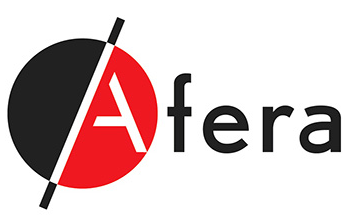
Lowering your environmental regulatory risk hinges on timely research and engagement with the entire tape value chain
 “In addition to having a clear understanding of the generic requirements applying to all industries and those specific to your product,” advised Afera Public Affairs Manager Mark Macaré, “tape manufacturers have to be in close contact with their suppliers and customers to ensure that everyone is on the same page about the exact application of the tape.” This is “How to Lower Your Risk in a Global Market,” the subject of Mr. Macaré’s presentation given on Day 2 of Afera’s Athens Conference.
“In addition to having a clear understanding of the generic requirements applying to all industries and those specific to your product,” advised Afera Public Affairs Manager Mark Macaré, “tape manufacturers have to be in close contact with their suppliers and customers to ensure that everyone is on the same page about the exact application of the tape.” This is “How to Lower Your Risk in a Global Market,” the subject of Mr. Macaré’s presentation given on Day 2 of Afera’s Athens Conference.
The most important environmental regulatory trends touching the tape business now:
- The distance between the consumer, manufacturer, and materials supplier of an article is shrinking
- With increasing access to knowledge provided by sophisticated digital apps, consumers are becoming more self-empowered, and industry has to move with them
- REACH-like regulations, in which the burden of proof (registering/supplying information on your chemicals) is falling upon industry, are becoming the norm
- Multinational companies must continue to adhere to national and regional regulatory legislation, as we are still a few generations away from global harmonisation of legislation, although there are some signs of convergence, such as the Globally Harmonised System of Classification and Labelling of Chemicals (GHS).
Mr. Macaré, who has degrees in chemical engineering and innovation science and is Secretary General of RadTech Europe, explained how various bodies check compliance with environmental regulations and the types of penalties imposed. These days, modern technology is increasingly  utilised to take care of reporting, product contents scanning and company notification inquiries, identifying offenders, and alerting consumers and other parties of environmental threats and disciplinary measures. Many national authorities have set up apps which encompass all of these activities. Germany’s dedicated app has more than 500,000 installs to date.
utilised to take care of reporting, product contents scanning and company notification inquiries, identifying offenders, and alerting consumers and other parties of environmental threats and disciplinary measures. Many national authorities have set up apps which encompass all of these activities. Germany’s dedicated app has more than 500,000 installs to date.
By 2021, the E.U. has committed to making easily available to companies a database for Candidate substances in articles under REACH. The European Chemicals Agency (ECHA) has released preliminary plans for the IT tools, and Afera is one of many associations which are currently providing feedback.
 Already, the Rapid Exchange of Information System (RAPEX) employs an ever-growing database on the chemicals put onto the market, notifying authorities of violations of European legislation such as REACH, CLP and POPs, including the adverse use of chloroform, benzene, toluene or dichloroethane in some glues. In one case, following an alert submitted by Slovakia, an offending Chinese glue product was recalled from the E.U. market, and a warning of its risks was issued to consumers.
Already, the Rapid Exchange of Information System (RAPEX) employs an ever-growing database on the chemicals put onto the market, notifying authorities of violations of European legislation such as REACH, CLP and POPs, including the adverse use of chloroform, benzene, toluene or dichloroethane in some glues. In one case, following an alert submitted by Slovakia, an offending Chinese glue product was recalled from the E.U. market, and a warning of its risks was issued to consumers.
In the case of California Proposition 65, which covers chemicals known to cause cancer or reproductive toxicity in all products in the state, violations are fined heavily. Compliance checks are not performed by government authorities or NGOs like in Europe but by law firms waging “bounty hunter” lawsuits. Afera monitors developments in this legislation on behalf of its members.
More product-related legislation includes the Restriction of Hazardous Substances Directive (RoHS) which covers certain hazardous substances like mercury and lead in electrical and electronic equipment in the E.U. and is looked to as a global standard. In one case study, a product was in violation due to the presence of PBDE in an adhesive. Even though the amount used for production was small and classified as a low-risk material, it was not monitored in internal quality control (IQC).  The adhesive supplier had changed the formula without checking compliance or notifying the customer. The solution was to reassess the production materials, improve IQC and enhance supplier management.
The adhesive supplier had changed the formula without checking compliance or notifying the customer. The solution was to reassess the production materials, improve IQC and enhance supplier management.
“If your adhesive supplier doesn’t inform you when he reformulates his product, you might want to think about switching suppliers,” stressed Mr. Macaré. In the case of China RoHS, some products that fail to meet legal requirements are destroyed.
Other product-specific requirements can be found in packaging (heavy metals), food safety packaging, auto assembly (end-of-life), batteries (heavy metals). There are also solvent residue issues including formaldehyde and VOCs which should be monitored.
Download the complete slide presentation of Mark Macaré (access code Athens2018)
Go to overview of articles on Athens Conference topics
Go to Mark Macaré’s Regulatory Affairs Updates
Learn more about Afera membership

